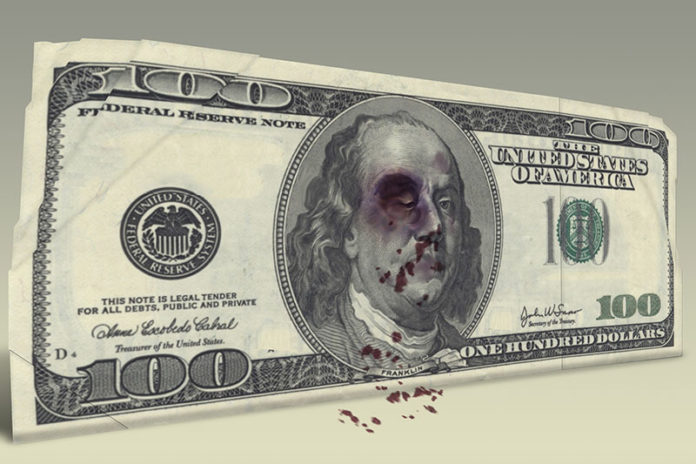In normal times, we expect the people who make economic policy to do everything possible to avoid a recession. But with the new coronavirus, that’s not an option. The steps needed to cope with the epidemic virtually guarantee a painful contraction. And that’s a price we should be willing to pay, because there is no good alternative.
Donald Trump has done a lot of things wrong, but he made the right point Tuesday about the sinking stock market. “For the markets, for everything,” he said, “the best thing we can do is get rid of the virus.”
For once, he wasn’t trying to boost the Dow Jones Industrial Average; he was emphasizing the short-term nature of the slump. “Once (the virus) is gone,” he predicted, the stock market is “going to pop back like nobody’s ever seen before.” His prediction may not be accurate, but at least the president is recognizing the inevitable harm that will result from the pandemic and the measures to combat it.
When you require many businesses to close or sharply curtail their operations, while asking citizens to stay home, the economy is bound to stop growing and start shrinking. But failing to take such steps would not prevent a downturn: It would merely postpone and greatly magnify it.
Given the realities of what’s happening, Congress and the president should not grasp at remedies that won’t make much difference. Fiscal stimulus is a bad idea because it misunderstands the problem. Stimulus makes sense when you want to boost economic activity by encouraging people to get out and spend. It makes no sense when you don’t want people to get out and spend.
Nor would a boost in demand — even if the government could achieve it — help with the other side of the problem, which is supply. Many companies have cut production because they can’t get the parts and materials. Automakers in Europe have shut down dozens of plants, and the United Auto Workers has asked the Big Three to follow suit. You can’t stimulate consumers to buy things that aren’t being made.
The administration’s first idea for helping people, a payroll tax cut, was off base because it would help only people who are working. Any help should be targeted at those who are losing income because of the epidemic.
Sending out checks to every American, or every American below a certain income level, is unwisely indiscriminate. Those people lucky enough to keep working at their jobs, which is most people, don’t need extra cash any more than before. The majority of these fortunate souls would not spend the money but put it in the bank, which is no way to stimulate the economy.
“The goal should be helping people who don’t have savings to pay their bills and debts for a while and enough to eat while we wait for the economy to restart, and businesses not to go bankrupt,” Stanford University economist John Cochrane told me. “That requires a lot more access to loans and forbearance than just spreading cash gifts around.”
Excluding anyone above a certain income threshold wouldn’t be much of an improvement. Take two people who have each been earning $60,000 a year. One loses her job; the other one keeps drawing her usual paycheck. One will have trouble covering basic needs; the other will not. There is no reason to send money to both.
What are the best ways for the federal government to help? Expanding unemployment benefits to workers who might not otherwise be eligible and waiving the usual requirement that recipients look for work is one way. Increasing the federal share of Medicaid outlays would make it easier for states to ensure treatment for more low-income people who get the virus.
Letting individuals and corporations postpone their April 15 income tax payments, as the administration is doing, makes sense, because it eases the cash bind that many are in.
Those in the most trouble are the ones who will make use of the option.
Help for businesses is probably essential because a cascade of bankruptcies is no help to anyone. But rescue packages should include stiff conditions, such as barring dividends, stock buybacks or executive bonuses until the money is repaid. Unpleasant terms would deter corporations from taking loans unless they have no alternative.
The common sentiment in Washington right now is to go big rather than risk doing too little. That’s a sound instinct, because of the huge scale of the crisis. But it’s equally important to go smart.




























